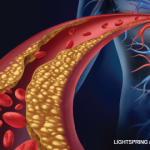One novel solution is to do just that: meet in the middle. As co-director of the University of Toronto Cardio-Rheumatology Network, Dr. Eder collaborates directly with cardiologists in a combined cardio-rheumatology clinic. All patients with inflammatory disease are referred to the clinic at the time of diagnosis primarily in order to screen, stratify risk and intervene when necessary. As a team, the providers “try to find novel ways of identifying clinical or subclinical CV disease using tools such as coronary artery calcium scores and carotid ultrasound to identify high risk individuals. Then, [they] treat early and aggressively to prevent these events,” Dr. Eder says.

Dr. Eder
Dr. Eder acknowledges that working in an academic center with a clinic like this is a “bit of a luxury,” and “most rheumatologists don’t have access to these resources.” She hopes more cardio-rheumatology clinics will emerge in the future.
But for the time being, who should screen for CV risk factors, and how should we do it?
Should we refer all patients with inflammatory disease to cardiology? Should the primary care doctor be responsible? Or should the burden fall primarily on us, as we are most aware of the increased CV risk? Dr. Eder admits she doesn’t have the answers to these questions, but identifies four practical ways rheumatologists can make a difference:
- Consider basic screening tests, and encourage healthy habits. Dr. Eder remarks, “Many of our patients rely on us as their primary care physicians. So just screening—checking blood pressure, cholesterol and blood sugar once a year; talking about smoking cessation and a healthy diet—can help.”
- Communicate abnormal findings to the primary care provider. Because most rheumatologists may not have the time nor the comfort level to address and manage CV risk factors when identified, Dr. Eder suggests rheumatologists communicate directly with a provider who could take the reins to better protect patients.
- Educate primary care providers and cardiologists. Dr. Eder notes that, as rheumatologists, we are aware of elevated CV risk, but our colleagues outside rheumatology—even cardiologists—are not frequently aware of this risk, especially in younger patients. Including an educational, templated phrase in our clinical notes about increased CV risk in this population is a quick and handy way to accomplish this.
- Educate and empower our patients. Lastly, Dr. Eder points out that many of our patients are not aware of their increased CV risk. Educating them can empower patients to serve as their own advocates, increasing the chances of proper preventive care.
Summary
Psoriatic arthritis (and most inflammatory rheumatic diseases) increases the risk of cardiovascular disease. Early identification and treatment of risk factors can positively impact patient health.



